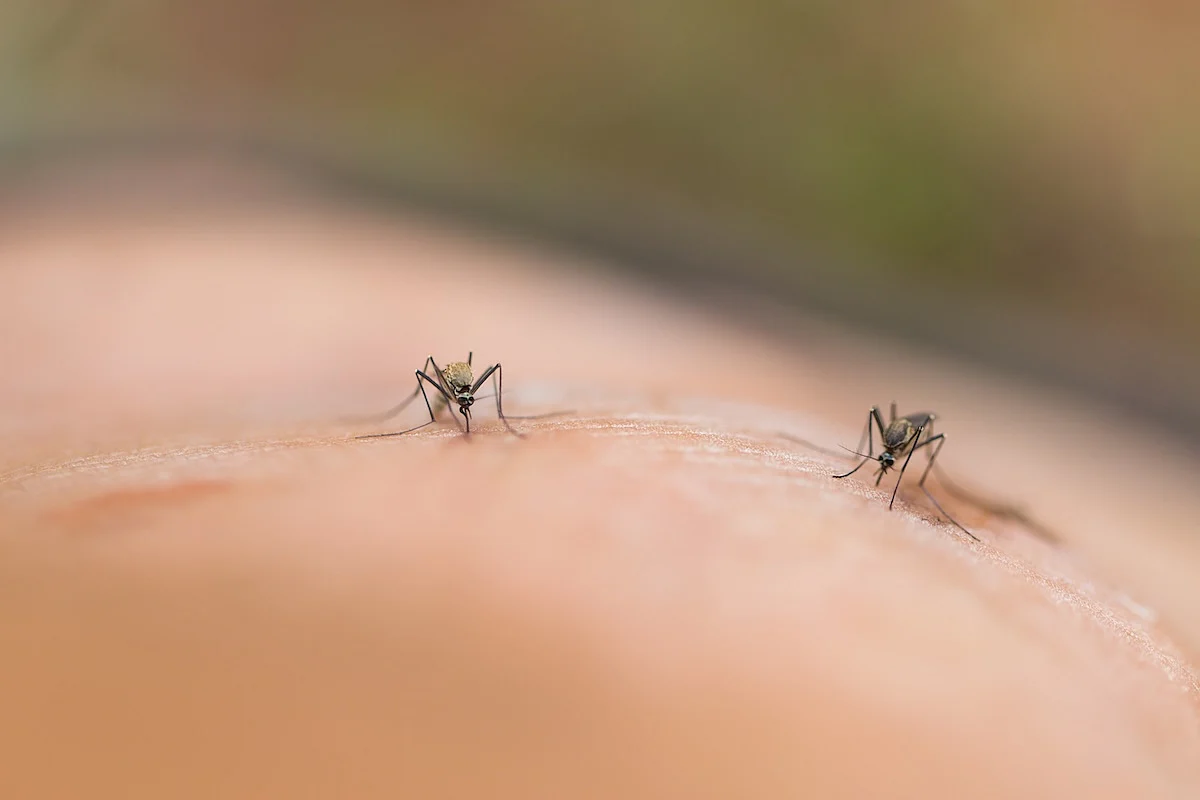CDC Warns Travelers After 8,000+ Chikungunya Cases Reported in China
By I. Edwards HealthDay Reporter
 via HealthDay
via HealthDayFRIDAY, Aug. 8, 2025 — Health officials in China are reporting more than 8,000 cases of chikungunya, a virus spread by mosquitoes that can cause fever and painful joints.
The outbreak is centered in Foshan, a city in the southeastern province of Guangdong with nearly 10 million people. Hong Kong, Macao and Hunan province — more than 400 miles north — have also reported cases.
In response, the U.S. Centers for Disease Control and Prevention (CDC) has issued a warning for travelers headed to China and other countries dealing with outbreaks, including Bolivia, Kenya, Madagascar, Mauritius, Mayotte, Réunion, Somalia and Sri Lanka.
Chikungunya can cause serious pain, especially in the joints.
“[It] can leave people disabled for weeks, months and potentially years," Dr. Peter Chin-Hong, an infectious disease expert at the University of California, San Francisco, told The Washington Post.
The chikungunya virus is spread by two types of mosquitoes: Aedes aegypti and Aedes albopictus. The virus is common in many warm regions, including Asia, Africa and the Americas, according to the World Health Organization.
Mosquitoes become infected when they bite someone who already has the virus, according to the CDC. They can then pass the virus to others through new bites.
The virus could be passed through blood transfusions or contact with infected blood. It is not spread by coughing, sneezing or touching.
Symptoms usually begin three to seven days after a person is bitten by an infected mosquito, the CDC says. These include fever, joint pain, headaches, rash and more.
Though chikungunya is rarely deadly, the joint pain can last for a long time. Older adults, babies and people with conditions like high blood pressure, diabetes or heart disease are more likely to get seriously ill.
As of July, about 240,000 chikungunya cases have been reported worldwide this year, and 90 people have died, according to the European Centre for Disease Prevention and Control.
There is no specific medicine to cure chikungunya, but two vaccines are now approved in the U.S., with the first receiving approval in 2023, The Post said.
However, China doesn't have access to those vaccines. Instead, health officials there are using other methods to slow the outbreak, such as using drones to spray mosquito repellent and releasing fish into ponds to eat mosquito larvae. Hospitals are required to report new cases within one day, The Post reported.
To prevent mosquito bites, the CDC recommends wearing long sleeves and pants when outdoors, using insect repellent and staying inside places with air conditioning or screened windows
Further, vaccines are recommended for people traveling to areas with outbreaks, especially for folks staying for extended periods.
Chin-Hong added that vaccines are a major step forward.
“It will be a matter of implementing them in the places that need it the most,” he told The Post.
Sources
Disclaimer: Statistical data in medical articles provide general trends and do not pertain to individuals. Individual factors can vary greatly. Always seek personalized medical advice for individual healthcare decisions.
Source: HealthDay
Posted : 2025-08-09 06:00
Read more

- Antibiotic-Resistant Bacteria Found in Many Pregnant Women, Newborns in the U.S.
- Major Adverse Cardiovascular Event Risk Emerges at Lower Coronary Plaque Burden in Women
- FDA Approves Filkri (filgrastim-laha), a Biosimilar to Neupogen
- Firearm Injuries Tied to Long-Term Physical, Functional Health Challenges
- Harmony Biosciences Receives U.S. Food and Drug Administration Approval for Wakix (pitolisant) for the Treatment of Cataplexy in Pediatric Narcolepsy
- 'Operation Stork Speed' Prepares to Overhaul Baby Formula Guidelines
Disclaimer
Every effort has been made to ensure that the information provided by Drugslib.com is accurate, up-to-date, and complete, but no guarantee is made to that effect. Drug information contained herein may be time sensitive. Drugslib.com information has been compiled for use by healthcare practitioners and consumers in the United States and therefore Drugslib.com does not warrant that uses outside of the United States are appropriate, unless specifically indicated otherwise. Drugslib.com's drug information does not endorse drugs, diagnose patients or recommend therapy. Drugslib.com's drug information is an informational resource designed to assist licensed healthcare practitioners in caring for their patients and/or to serve consumers viewing this service as a supplement to, and not a substitute for, the expertise, skill, knowledge and judgment of healthcare practitioners.
The absence of a warning for a given drug or drug combination in no way should be construed to indicate that the drug or drug combination is safe, effective or appropriate for any given patient. Drugslib.com does not assume any responsibility for any aspect of healthcare administered with the aid of information Drugslib.com provides. The information contained herein is not intended to cover all possible uses, directions, precautions, warnings, drug interactions, allergic reactions, or adverse effects. If you have questions about the drugs you are taking, check with your doctor, nurse or pharmacist.
Popular Keywords
- metformin obat apa
- alahan panjang
- glimepiride obat apa
- takikardia adalah
- erau ernie
- pradiabetes
- besar88
- atrofi adalah
- kutu anjing
- trakeostomi
- mayzent pi
- enbrel auto injector not working
- enbrel interactions
- lenvima life expectancy
- leqvio pi
- what is lenvima
- lenvima pi
- empagliflozin-linagliptin
- encourage foundation for enbrel
- qulipta drug interactions
